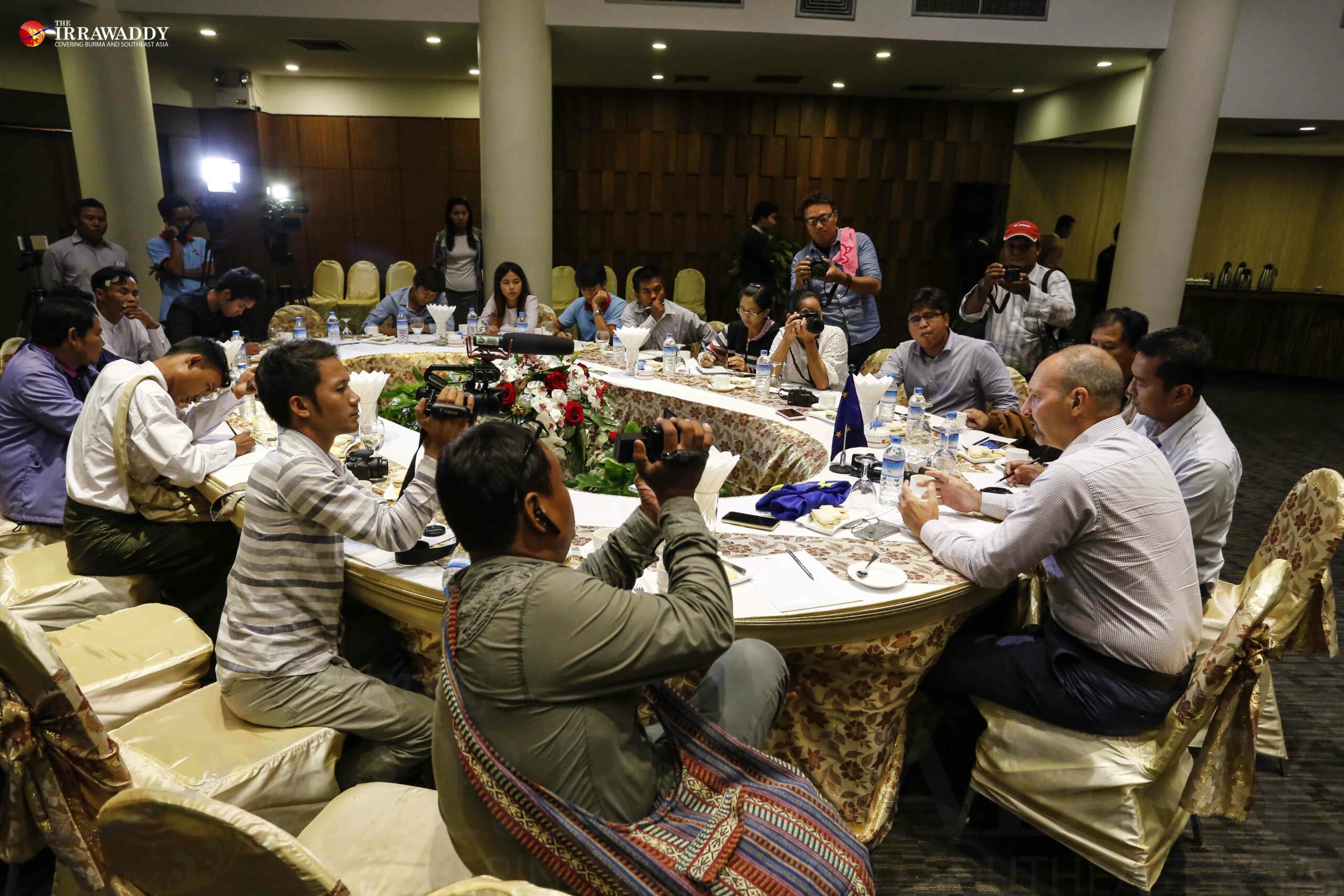MANDALAY – As the Union Peace Conference draws near, the European Commission, who will witness the event, is urging a policy of all-inclusivity.
Roland Kobia, the European Union’s ambassador to Burma, told journalists in Mandalay on Tuesday that dialogue is an important element of sustainable peace in the country.
“The EU’s concern is to at least give a chance to dialogue. If they [the ethnic groups] are invited to discuss at the table, and when they are around the table, they can agree and disagree, and at least, they will have a chance to dialogue,” said the ambassador.
Kobia pointed out that some ethnic armed groups are still yet to be invited to what is being dubbed the 21st Century Panglong conference, scheduled to begin on August 31 in Naypyidaw.
The Ta’ang National Liberation Army (TNLA), the Arakan Army (AA) and the ethnic Kokang’s Myanmar National Democratic Alliance Army (MNDAA) are currently involved in active conflict with the Burma Army in northern Shan State. Although the groups have stated that they are “ready” to attend the peace conference, they have not received an official invitation yet.
“The more inclusive the peace process is, the more sustainable. If some groups are excluded, it will not give good results for the long term and this will create problems again,” said the ambassador.

While praising State Counselor Daw Aung San Suu Kyi’s peace efforts, the EU ambassador said that ending conflict is important for the country’s stability, democracy and economic prosperity.
“If Myanmar wants to have a democratic system, it needs to end the conflicts. Democracy is incompatible with war. To make this happen, all-inclusiveness is important,” Kobia said.
“It takes times to build back the trust, which is the basic thing they need to compromise, as the peace process is about compromise. Every party should be ready to make concessions to find a common denominator. But it is worth it to do anything to achieve peace,” he added.
The EU ambassador said that the possible visit of UN Secretary-General Ban Ki-moon at the peace conference would send a powerful message to the ethnic representatives in attendance.
“Many ethnic armed groups would like to have more guarantees from the international community. And they need to know that the international community is watching over the peace process to ensure that it will be impartial,” Kobia said. “If people like Ban Ki-moon are coming, it is a strong signal that the international community at the highest level is interested and it will reassure numbers of groups involve in the peace process,” he added.











